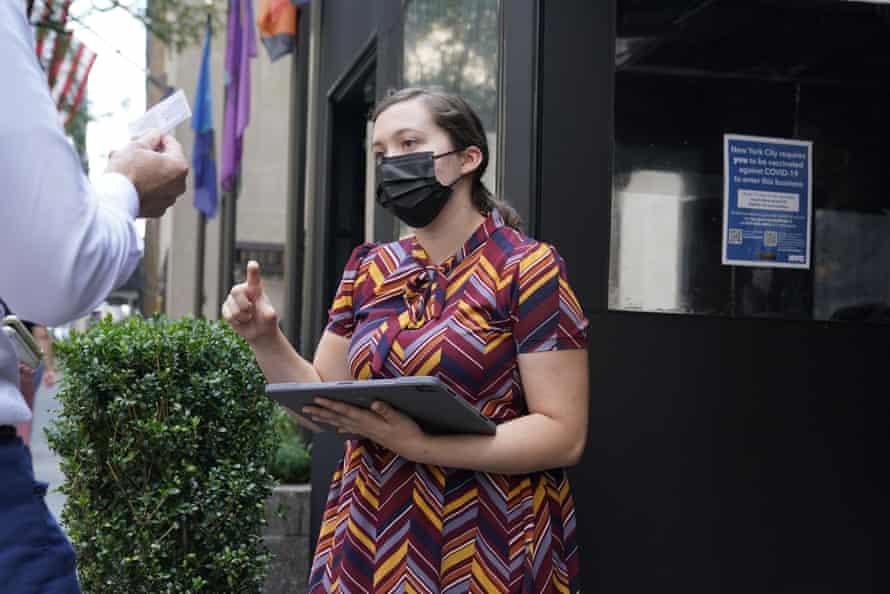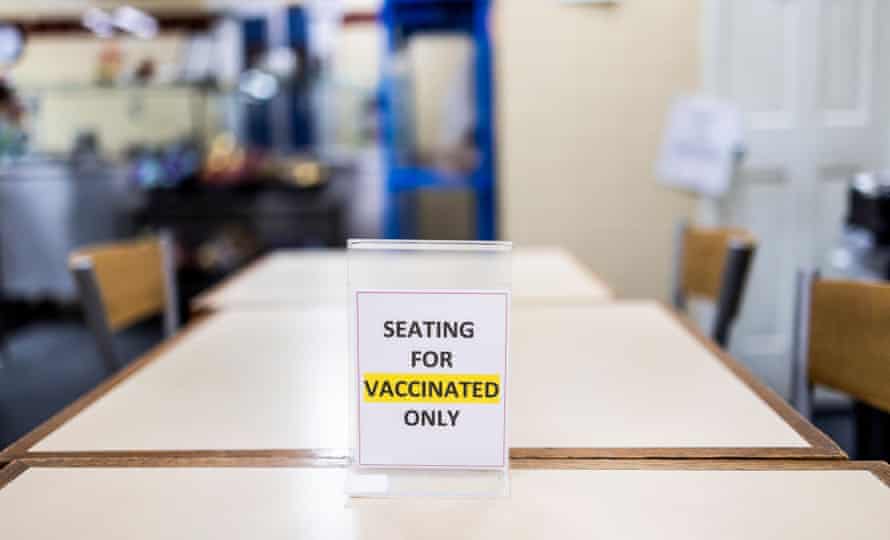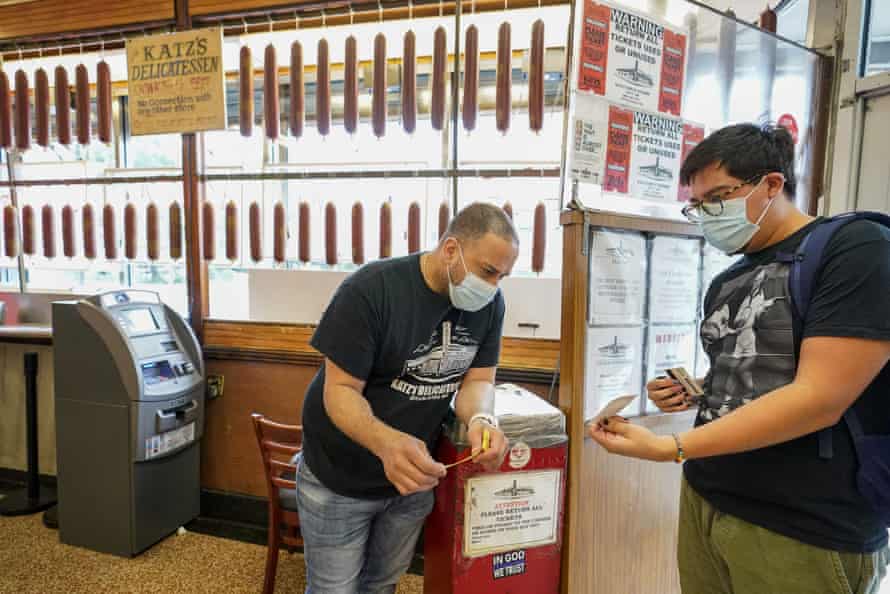
Tyler Hollinger, owner of Festivál Cafe, a “farm-to-bar cocktail cafe” in New York City, said he recently started learning Brazilian jiu-jitsu because of physical altercations with visitors who are unvaccinated against Covid-19.
The reason for the fights isn’t that Hollinger is a crusader for the city’s requirement that people show proof of vaccination to sit inside at bars and restaurants.
In fact, Hollinger, who is vaccinated and boosted, has opposed the mandate since it was announced in August and now welcomes the plan to lift it.
The city “could have denied people access to the [Metropolitan Transportation Authority], buses and subways for not being vaccinated, but instead they put the burden on small businesses … which directly harms our bottom line and only helps the city”, said Hollinger, who opened his restaurant in September 2020, meaning it has only existed during the pandemic.
As New York City and other government entities begin to lift vaccination requirements, many in the hospitality industry say they welcome the moves and think they will help restaurants and bars. “We need to be smart and safe but continue to live our lives, and we can’t continue such strict mandates indefinitely when there isn’t as strong a justification for them anymore,” said Andrew Rigie, executive director of the New York City Hospitality Alliance.

But at the same time some experts worry that lifting the restrictions too soon or too fully presents a serious health risk. After all, the pandemic is not over, there are still millions of vulnerable Americans who are unvaccinated and a new variant could rapidly arise at almost any time.
In New York, which has been buffeted by the virus more than perhaps any other American city, all those tensions are playing out.
When then New York Mayor Bill de Blasio announced workers and patrons would need to show proof of vaccination at indoor dining, gyms and entertainment venues, he said, “If you want to participate in our society fully, you’ve got to get vaccinated.”
Since then, Covid case, hospitalization and death numbers that spiked during the Omicron wave and have plummeted.
Mayor Eric Adams announced on 27 February that the city would lift the requirements on 7 March if Covid indicators remained low.
New York has already in recent weeks seen a significant increase in the number of people booking hotels, and the lifting of the mandate will help that trend, said Chris Heywood, a spokesman for NYC & Company, the city’s tourism agency.
More than 60% of the city’s hotel rooms were occupied the week ending 26 February, which was an almost 20% increase from a month earlier, but still significantly below the 90% occupancy rate reached in 2019, according to the hotel-analytics firm STR.
“I think there is an industry-wide effort to get us back to a sense of normalcy, to lift any unnecessary restrictions because that will signal to people that it’s time to return to normalcy, that the country is open for business and that it’s OK to travel now,” said Heywood.

But Dr Stephen Morse, a professor of epidemiology at Columbia University Medical Center, continues to worry about a new variant emerging that catches people by surprise like Omicron did. By waiting another month or two to lift restrictions such as the vaccine mandate, he said, we would gain “perhaps more time to get more people vaccinated in other parts of the world, which would reduce the evolution of new variants”.
“I personally would like to see us continue” the proof of vaccination requirement, “but I realize how hard it is to really enforce that, how much pushback there has been”, said Morse. “It’s unfortunate that it has become so politicized.”
Dr Wafaa El-Sadr, an epidemiologist at Columbia University’s Mailman School of Public Health, said she is “baffled” by the decision to lift the mandate.
People in bars and restaurants are often close together “and obviously it’s a setting where people cannot wear a mask since they are eating and drinking”, El-Sadr said. “I don’t think it’s an onerous requirement and as people are moving around and mixing and coming from other parts of the country, it makes the requirement for vaccination become more important.”
But Rigie points to the fact that New York was one of a handful of cities that implemented such a requirement – and that other American cities have also dropped their restrictions. San Francisco still has a proof of vaccine mandate.
Even once the city lifts the mandates, some restaurateurs have said they still plan to ask guests for proof of vaccination to dine indoors.

“I think individual businesses will have to make decisions that work for themselves, their employees and their customers,” Rigie said.
Jeremy Wladis, president of The Restaurant Group, which operates a number of eateries on the Upper West Side, said he and his partners considered continuing to check people’s vaccination status once the requirement is lifted but decided against it because of concerns that some people’s response may be, “Hey, it’s over. Stop bothering me.”
“I think it’s going to be more people coming in than we have had in a couple years,” said Wladis, who owns restaurants such as Nina’s Great Burrito Bar and Harvest Kitchen. “There is no way to please everybody all the time.”
Even once the city lifts the requirement, Hollinger, the Festivál Cafe owner, said that will not solve all his problems at the restaurant. He said it’s been hurt by the increase in crime and the number of people experiencing homelessness that has occurred during the pandemic.
But if more people return to bars and restaurants, “there is no crime because there are too many people watching”, said Hollinger. I hope “there is going to be a resurgence this spring and summer where people feel safe to go out and party, to have fun … That’s the whole reason people live in New York City, is because of the world class food and drinks.”


